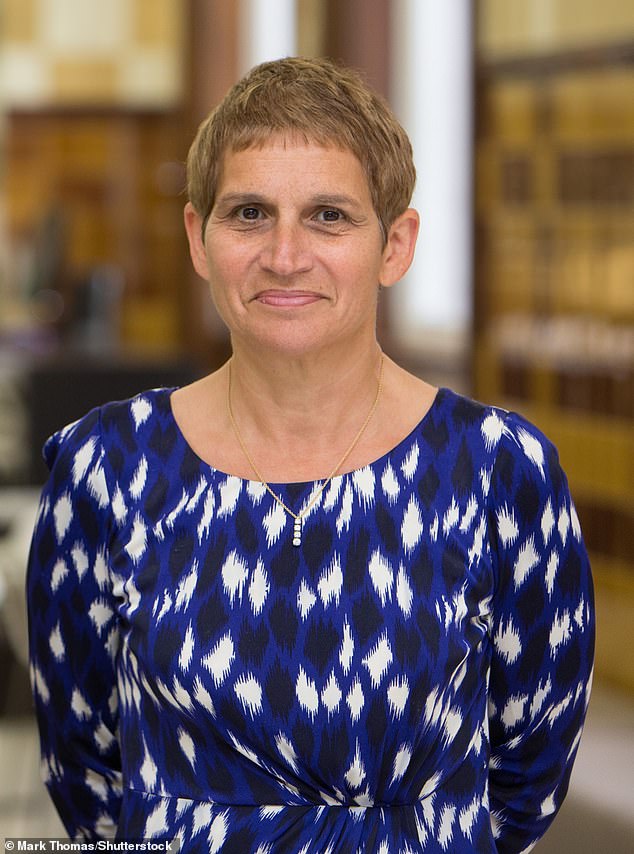Britain is in the grip of a serious mental health crisis and, if things don’t change fast, it’s only going to get worse.
However, the issue is not what you might expect. It’s not that more and more people are succumbing to mental illness, it’s that an increasing number of people who are not mentally unwell are trying to convince themselves, and others, that they are.
GP surgeries and psychiatry outpatient clinics are seeing an increasing number of people who have self-diagnosed and are now convinced that they have mental illnesses such as depression, anxiety, OCD, PTSD or neuro-developmental disorders like autism or ADHD.
Of course, some people do. But certainly not all of those who seem to cling to these diagnoses as a way of explaining and understanding the difficulties life throws at us – difficulties that are perfectly normal and that we all experience – do.
There was a time when mental illness was shrouded in secrecy and stigma, so that many patients who desperately needed help were often too ashamed to come forward.
Fast forward to 2025 and it’s starting to feel like mental illness has become a badge of honour.


I would never want us to go back to those dark days when mental health issues were never talked about, but I believe the pendulum has swung too far the other way.
The current crisis – with so many of the ‘worried well’ seeking diagnosis – results in a drain on the time and resources of mental health professionals, so that those in genuine need miss out.
Former prime minister Sir Tony Blair highlighted this issue last week on a podcast, when he warned of our rush to medicalise ‘the ups and downs’ of life.
He also expressed concerns over the dangers of self-diagnosis, which were echoed by Dame Clare Gerada, former president of the Royal College of General Practitioners, who said that Britain has a ‘problem’ with people ‘seeking labels to explain their worries’. She added that such people ‘would rather have a label than consider why their life might be challenging, or where it could have gone wrong.’
Inevitably, as always happens when you try to suggest that mental health conditions are being mis-understood and misdiagnosed, Sir Tony and Dame Clare came in for criticism.
Whenever I’ve said anything similar, I always get many emails and letters of support but also a handful from the vocal minority who accuse me of being cold and uncaring.
Isn’t it strange that this is the response when you are trying to tell people that they aren’t mentally unwell? Imagine a cancer specialist saying, actually, you don’t have cancer, and getting told they don’t know what they’re talking about.
As a doctor, I consider it my moral and professional duty to ensure that people aren’t unnecessarily medicalised. It’s my job to explain that although your life might be difficult, this doesn’t necessarily make you mentally unwell. Life isn’t a bed of roses, we all have to make our peace with that.
Yet when we say this, there is often a lot of pushback from patients. They don’t want to be told that they are perfectly well because then they will have to address the issues in their life that they are struggling to cope with.
I recently attended a meeting of consultant psychiatrists where this very issue arose. One revealed that she now spends the majority of her time telling patients they don’t have a mental illness. ‘I thought that no one wanted to be mentally ill,’ she said, rolling her eyes. ‘It turns out, everyone does.’
She said when she explains to patients that what they are describing isn’t depression, for example, they look at her perplexed and reply, ‘But I’m not happy’ – somehow imagining that we are supposed to exist in a perpetual state of euphoria.
Alarmingly, people are now so convinced that they are mentally ill that some exasperated doctors give in to their demands and gift them with the label that they are so desperately seeking. This means that for a small but significant minority, they can go on to claim benefits and even stop work altogether.
I cannot tell you how many people I see who have been signed off due to their mental health problems – often because of rather dubious symptoms which I’m not convinced constitute a real mental illness at all. Some then languish at home, watching TV all day, playing computer games and smoking cannabis. And guess what happens? They end up developing genuine mental health problems. Others become so used to inactivity and so isolated by staying home that they end up on the scrapheap.
Let me say how genuinely great it is that people now talk so openly about their problems, rather than sweeping them under the carpet. However, my biggest concern with the current crisis is that we now risk wrongly labelling normal feelings as something to be worried about.
It sends the message that life should always be positive and joyful when we all know it’s rife with frustration, disappointment and scary uncertainties.
So, yes, let’s keep talking, but can we please expand that conversation to take in the realities of life and the tools
we need to boost our resilience – rather than enabling so many people to believe falsely that they are mentally unwell.
Shocking testimonies by nurses have revealed that patients, stripped of their dignity, are dying in cold, draughty corridors in hospitals up and down the country. We pioneered healthcare in the UK.
How can things have come to this?
Why I’m a huge fan of The Traitors

I’m obsessed with The Traitors. It teaches us so much about group psychology. Cliques develop, alliances form, and many contestants struggle to acknowledge there may be a traitor in their group.
The round table segment is a great example of herd mentality and how quickly people will conform to a group view – even if this flies in the face of what they believe.
It’s a well-known phenomenon proven by psychologist Solomon Asch, who discovered in his classic group experiment that 75 per cent would deliberately select wrong answers to questions to conform with others.
In The Traitors, hosted by Claudia Winkleman many ‘faithfuls’ vote against their better judgment to banish a contestant. They fear speaking out – as this may set them apart or risk the group turning against them.
To me, the show proves that most of us value conformity over what we believe to be true.
‘You’re not going out to play until you’ve eaten everything on your plate!’
How often have you heard this from parents who are trying to get their children to finish a meal? Yet this attitude may be helping to fuel the nation’s obesity epidemic.
A British Nutrition Foundation survey revealed that more than half of parents made their children eat everything on their plate.
This normalises the need to continue to eat even when children feel full. Alongside this, experts warn that many parents are overestimating how much their children should eat, dishing out far too big a portion.

